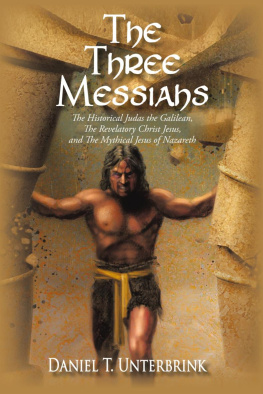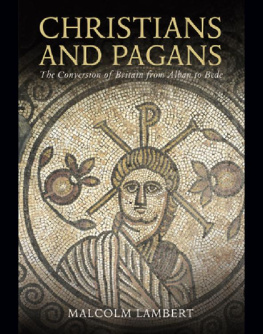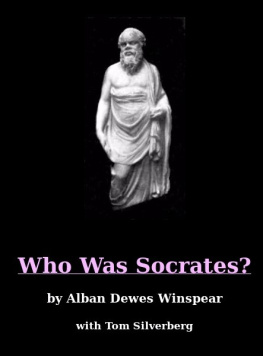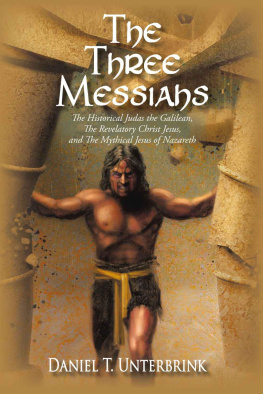Alban Goodier - Good Galilean
Here you can read online Alban Goodier - Good Galilean full text of the book (entire story) in english for free. Download pdf and epub, get meaning, cover and reviews about this ebook. year: 2013, publisher: Sophia Institute Press, genre: Science. Description of the work, (preface) as well as reviews are available. Best literature library LitArk.com created for fans of good reading and offers a wide selection of genres:
Romance novel
Science fiction
Adventure
Detective
Science
History
Home and family
Prose
Art
Politics
Computer
Non-fiction
Religion
Business
Children
Humor
Choose a favorite category and find really read worthwhile books. Enjoy immersion in the world of imagination, feel the emotions of the characters or learn something new for yourself, make an fascinating discovery.
- Book:Good Galilean
- Author:
- Publisher:Sophia Institute Press
- Genre:
- Year:2013
- Rating:4 / 5
- Favourites:Add to favourites
- Your mark:
- 80
- 1
- 2
- 3
- 4
- 5
Good Galilean: summary, description and annotation
We offer to read an annotation, description, summary or preface (depends on what the author of the book "Good Galilean" wrote himself). If you haven't found the necessary information about the book — write in the comments, we will try to find it.
Good Galilean — read online for free the complete book (whole text) full work
Below is the text of the book, divided by pages. System saving the place of the last page read, allows you to conveniently read the book "Good Galilean" online for free, without having to search again every time where you left off. Put a bookmark, and you can go to the page where you finished reading at any time.
Font size:
Interval:
Bookmark:
The Good Galilean
Lessons in Living from the Son of Man Himself
Archbishop Alban Goodier
SOPHIA INSTITUTE PRESS
Manchester, New Hampshire
The Good Galilean was originally published in 1928 by The Macmillan Company, New York, under the title Jesus Christ, the Model of Manhood. This slightly abridged 2009 edition by Sophia Institute Press includes minor editorial revisions and does not include the introduction in the original edition.
Copyright 2009 Sophia Institute Press
Printed in the United States of America
All rights reserved
Cover design by Theodore Schluenderfritz
On the cover: Christ in the House of Martha and Mary, by Jan Vermeer, National Gallery of Scotland, Edinburgh, Scotland / The Bridgeman Art Library
No part of this book may be reproduced, stored in a retrieval system, or transmitted in any form, or by any means, electronic, mechanical, photocopying, or otherwise, without the prior written permission of the publisher, except by a reviewer, who may quote brief passages in a review.
Sophia Institute Press
Box 5284, Manchester, NH 03108
1-800-888-9344
www.SophiaInstitute.com
Nihil obstat:
Arthur J. Scanlan, S.T.D.,
Censor Librorum
Imprimatur:
Patrick Cardinal Hayes,
Archbishop, New York New York,
December 22, 1927
The good Galilean : lessons in living from the Son of Man himself / by Alban Goodier.
p. cm.Rev. ed. of: Jesus Christ, the model of manhood. ISBN 978-1-928832-60-7 (pbk. : alk. paper) 1. Jesus Christ Example. 2. Christian life Catholic authors. I. Goodier, Alban, 1869-1939. Jesus Christ, the model of manhood. II. Title.BT304.2.G66 2009232.904 dc222009035631
Also by Alban Goodier from Sophia Institute Press :
Saints for Sinners
Editors note: The biblical quotations in the following pages are taken from the Douay-Rheims edition of the Old and New Testaments. Where applicable, quotations have been cross-referenced with the differing names and enumeration in the Revised Standard Version, using the following symbol: (RSV =).
Introduction

The Perfect Man
Many philosophers in the past, many novelists and poets in more recent times, have attempted to describe for us the perfect man. From the very nature of the case, their descriptions have differed one from another; while, perhaps, all have been good so far as they have gone, none have been able to include in their description the whole idea of mans perfection. For man is limited and finite; he cannot conceive in his mind an ideal that contains in itself the whole scope of perfection, not even if his vision confines itself to the plane of nature alone.
And even if he could, when he comes to describe it, he can do so only in the limited terms of his own imagination and language. He will speak from his own experience of himself, especially his own shortcomings, from his knowledge of and insight into other men, possibly from the ideal picture that his imagination has conjured up after the sordidness of real life has been eliminated. But in every case it will be his own vision and perspective, his own point of view, which will be expressed; true, noble, complete, perfect in its degree, but nevertheless with the confining limitations and lacunae that human nature cannot escape. In fact or in fiction, in history or in drama, the altogether perfect man does not exist; if he did, if he were in all things and always perfect, he would be something more than human.
So we say, speaking of ourselves and of one another, of all men as we know them, of all men as they have been described by others; the knowledge of this truth leads us to judge not, that we may not be judged, to forgive as we would be forgiven, to see not the mote in our brothers eye, being only too conscious of the beam within in our own. Human nature, because it is human nature, is faulty.
And yet we are compelled to make one exception. There has lived in this world one man in whom, if he is taken wholly, no fault whatsoever has been found, who has shown himself in all things perfect, whose accurate picture, moreover, has been handed down for us all to study; the impossible has been done before our eyes. The more closely the portrait is examined, and the more in detail the character is revealed, so much the more is this amazing fact found to be true; and not only by followers who love his name, and might therefore be predisposed to see in him the most beautiful of the sons of men,
This conclusion, however vague in its final expression, we may well be justified in claiming as the glorious outcome of the long-drawn battle that a century and more has seen waged around the name of Jesus Christ. Whatever adverse and less enlightened criticism might have attempted in the past, whatever specious science might attempt today, sober scholarship the world over comes more and more to acknowledge this at least: not only the full fact of Jesus Christ as the Scriptures give him to us, not only that he stands out pre-eminently as the greatest man this world has ever seen, but also the further fact that he is so great, so complete, so universally perfect as to be unique, in some sublime sense more than ordinary man either is, or could be, or could ever of himself fashion in his mind.
Students have naturally looked for limitations, and have found none; some have assumed shortcomings, and others have proved their assumptions to be contrary to the facts. They have searched for the shadows corresponding to his established virtues, and have found them not to be there; powers and gifts that in other men do not co-exist are discovered united in him. He is undefinable; limited though he may be because of his humanity, still we cannot fix the limits; if we try to lay hands on him, if we say that because he is this therefore he is not that, he slips through our fingers and escapes us. No one quality can be ascribed to him as characteristic to the exclusion of another; he possesses them all. The ideal that man of himself cannot so much as imagine has been found in him in real life. We live in an age of discoveries, but no discovery of our time has been more momentous, more epoch-making, than this.

We must see Jesus as both God and man
It is not that we have discovered anything we have not known before; fortunately for the world, the knowledge of Jesus Christ never has been and never can be lost. Rather, it is the angle of vision that may be considered comparatively new. From the days of St. Paul, it has been well understood that Jesus Christ, the true Son of God, since he chose to become man, could not but be perfect man. Since he came for man, for mans redemption and to be mans model, he could not but be mans perfect model. Given the Godhead and the truth of the Scriptures, there was only one light in which those Scriptures could be read by the Fathers and the early Church, and that was the Light which was the life of men, the true Light, which enlighteneth every man that cometh into this world. But in our own time, the tendency has been to begin at the opposite extreme; to argue not from the Godhead to the manhood, but from the manhood to wherever the argument might lead. It was a course inevitable for those to whom God had come to have little or no meaning, who were therefore compelled to investigate the facts of history as historical facts alone, incapable of being anything more. Since the Sonship of God to them meant nothing, the truth had to be read and interpreted by them in the absence of that guiding light; and although, even in that darkness, the picture obtained of Jesus Christ has been of surpassing human beauty, yet has it fallen far short of the whole.
Next pageFont size:
Interval:
Bookmark:
Similar books «Good Galilean»
Look at similar books to Good Galilean. We have selected literature similar in name and meaning in the hope of providing readers with more options to find new, interesting, not yet read works.
Discussion, reviews of the book Good Galilean and just readers' own opinions. Leave your comments, write what you think about the work, its meaning or the main characters. Specify what exactly you liked and what you didn't like, and why you think so.

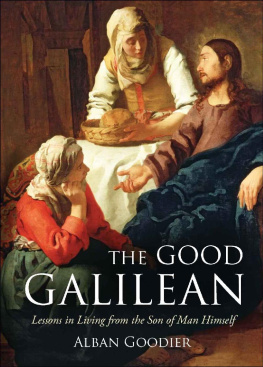



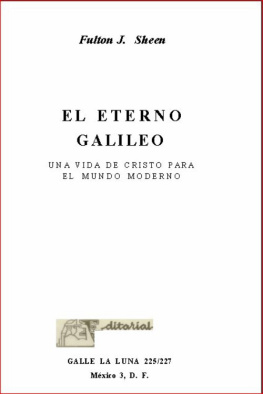
![Rev. Fr. Alban Butler - Lives of the Saints (with Supplemental Reading: A Brief Life of Christ) [Illustrated]](/uploads/posts/book/269975/thumbs/rev-fr-alban-butler-lives-of-the-saints-with.jpg)
